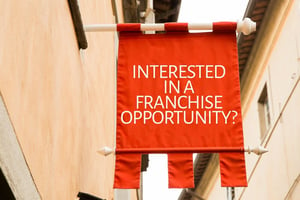Inside the Middle East Business Playbook: Singapore Entrepreneurs Reveal What Actually Works
The Middle East's glittering skylines and ambitious development plans have long captivated global entrepreneurs. But beyond the headlines about mega-projects and oil wealth, what's the real story for businesses looking to enter these markets?
Three Singapore-based entrepreneurs who've successfully navigated Middle Eastern markets share their ground-level insights about what it actually takes to succeed in this dynamic region.
"What the Middle East is seeing most of the time is that when you come in with technology, with experience, with exposure, that has certain value and they're willing to talk to you," explains Azhar Othman, Executive Chairman of Enercon Asia Group, who has spent two decades building business relationships across the region.
The Singapore Advantage
Contrary to what many might expect, being from Singapore opens more doors than you'd think. "When we tell them we're from Singapore, we have a good reputation," shares Keith Tan, CEO of Ella by Crown Digital, whose robot barista concept caught the attention of Middle Eastern investors. "The Singapore brand stands strong in the Middle East."
This reputation stems from Singapore's own development story and established rule of law, making Singaporean businesses particularly attractive partners for Middle Eastern ventures.
Breaking Down the Market Structure
The Middle Eastern business landscape operates on distinct layers:
- Local business owners (typically nationals) who make final decisions
- Senior management (often expatriates) who handle day-to-day operations
- Working professionals (predominantly from South Asia and other regions)
Understanding this structure is crucial for successful market entry. As Roseman notes, "When I first went to the Middle East, you notice the locals are not in the office. The meetings are mostly with immigrants or foreigners - Lebanese, Jordanians, Indians, Pakistanis."
The Dubai Gateway Strategy
While countries like Bahrain and Qatar actively court foreign businesses, Dubai remains the preferred entry point for most tech and consumer companies. Why? The ecosystem.
"Dubai is like the gateway. If you have any new tech, Dubai will be the place to see," explains Keith. "But Saudi is always the North Star in the GCC. Getting into Saudi is where the consumption and the size and the opportunity is."
Cultural Intelligence: The Hidden Success Factor
Success in Middle Eastern markets requires understanding subtle cultural dynamics. Business meetings often take the form of extended lunches lasting two hours or more. "The whole idea was to enjoy the company. You cannot rush," shares Roseman. "The conversation is not purely about business - it can be about politics, about Lee Kuan Yew, they touch on that. They know Singapore well."
Key Market Opportunities
Several sectors show particular promise:
- Education and training services
- Technology solutions, especially in Dubai
- Halal food and beverages
- Healthcare services
- Energy sector innovations
- Luxury retail and perfumes
"If you're into perfumeries, it's a very good market to be in. Although it's very competitive, there's a need," shares Tanya from World Future Enterprises, noting how some men keep up to seven different fragrances for different occasions.
Critical Success Factors
For businesses considering Middle Eastern expansion:
- Long-term commitment (5-10 years minimum)
- Local partnerships or representation
- Network-based approach rather than cold outreach
- Understanding of regional differences
- Patience with decision-making processes
"They have a big picture, they want to get there, and they're willing to fund it," notes Keith about technology investments in the region. "If you can convince them, you've got it."
Looking Ahead
While Dubai has introduced a 10% corporate tax (previously zero), the region still offers significant advantages for foreign businesses. The key is understanding where your business fits within the broader development visions of different Gulf countries, particularly Saudi Arabia's Vision 2030.
As Roseman concludes, "In terms of their financial position, they are okay. If you have the ability and expertise, they are willing to pay for that. When there's a problem and you can solve the problem, they're willing to pay for that as well."
For Singapore businesses eyeing Middle Eastern opportunities, the message is clear: success requires more than just a good product or service - it demands cultural intelligence, patience, and a long-term commitment to the region.
Check out their full interview here
Let us know what you think about this topic and what you want to hear next.
You can now be our community contributor and make a pitch to have your favourite personality be on our show.
Join our community group and drop us your insights on this topic.

-3.png?width=50&name=Square%20(2)-3.png)








Let us know what you think of this post